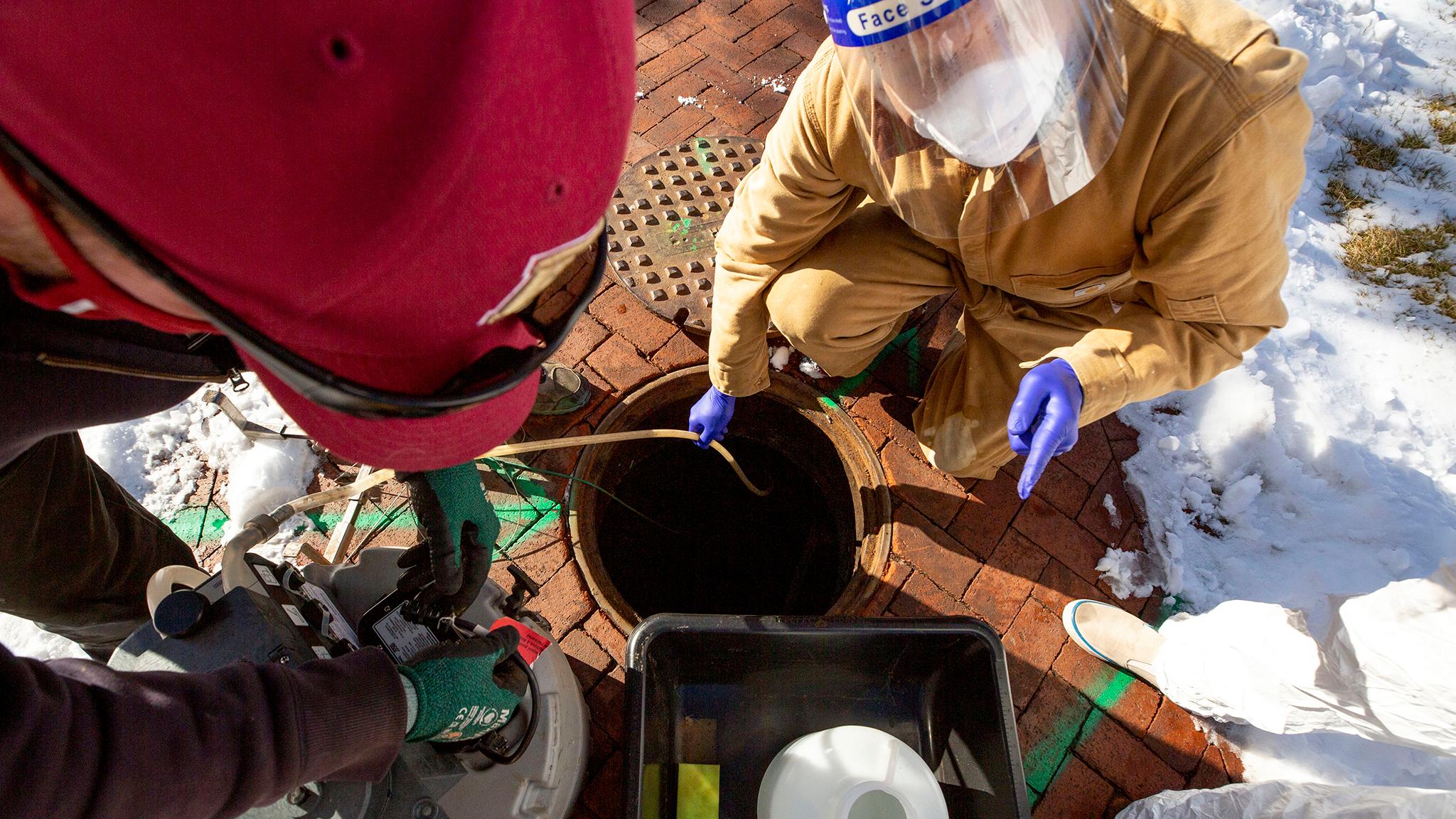"OK, so this is gonna get pretty nasty," Keith Miller says as he peers into an open manhole.
Beneath the DU professor, sewage from the Nelson Hall dormitory trickles through sunlight beaming into the shaft. Levels are low on this cold day in December. School is out for the holidays, so there aren't too many students flushing toilets.
Miller is an analytical chemist by training and he's studied wastewater before, but he's mostly worked as a university administrator in recent years. He had an opportunity to wade back into the world of science when it became clear that COVID-19 was a serious risk to students, staff and the way of life on campus.
In September, Miller oversaw the installation of six water monitors at DU's dorms. He collected samples from each, twice a week, with the assistance of plumbing staffer Shawn Martin and an assortment of work-study students. He sent the liquid to a lab where it was analyzed for the presence of COVID-19.
The virus tends to show up in stool before sick students ever see symptoms, he said. If samples showed spiking levels, university officials would begin testing scores of dorm residents who may have been exposed.
Miller is part of a team of professors and faculty who are using their areas of expertise in concert to make sure DU is safe for students. The fall quarter gave them an opportunity to hone custom surveillance systems and run countless mathematic models that undergird campus pandemic policy. As they wait for students to return in January and for vaccines to reach the general public, the university's so-called COVID Response Team hopes it can keep the virus at bay.
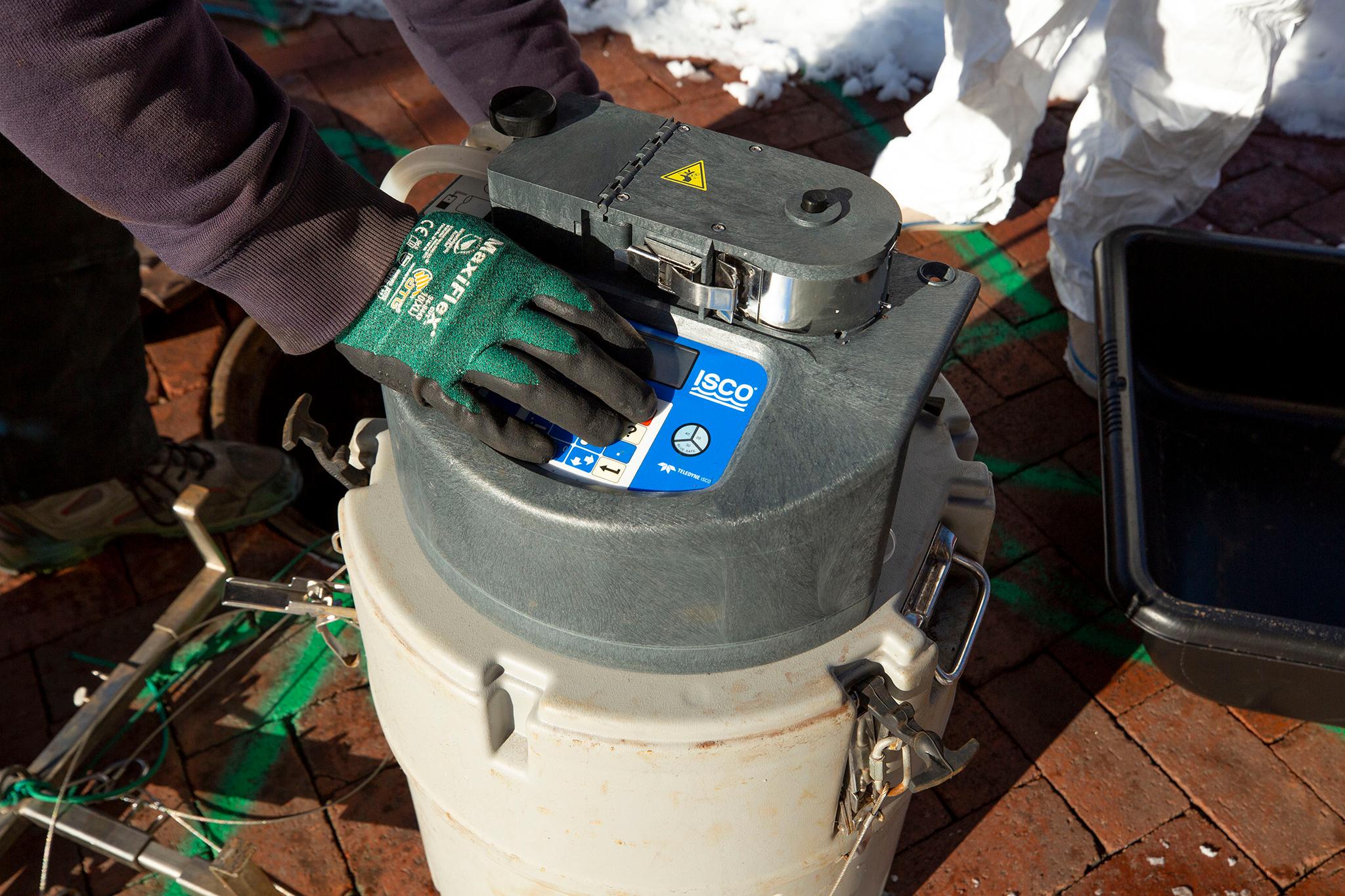
It's kind of like an A-Team of experts to fend off the pandemic.
As many as 9,000 students and faculty members will be tested twice by the time the first month of school is complete. Those are marching orders from Corinne Lengsfeld, DU's senior vice provost for research and graduate education.
When the pandemic reached Denver in the spring, Lengsfeld was acting as interim provost, and it was her responsibility to coordinate the university's response. She was lucky, she said, that she held the job when things began to look grim. Lengsfeld's research centers around pharmaceutical science and the distribution of vaccines. She's a mechanical engineer by training, and systems are kind of her thing.
"During the height of the pandemic, in many ways, I was the right person at the right time," she said.
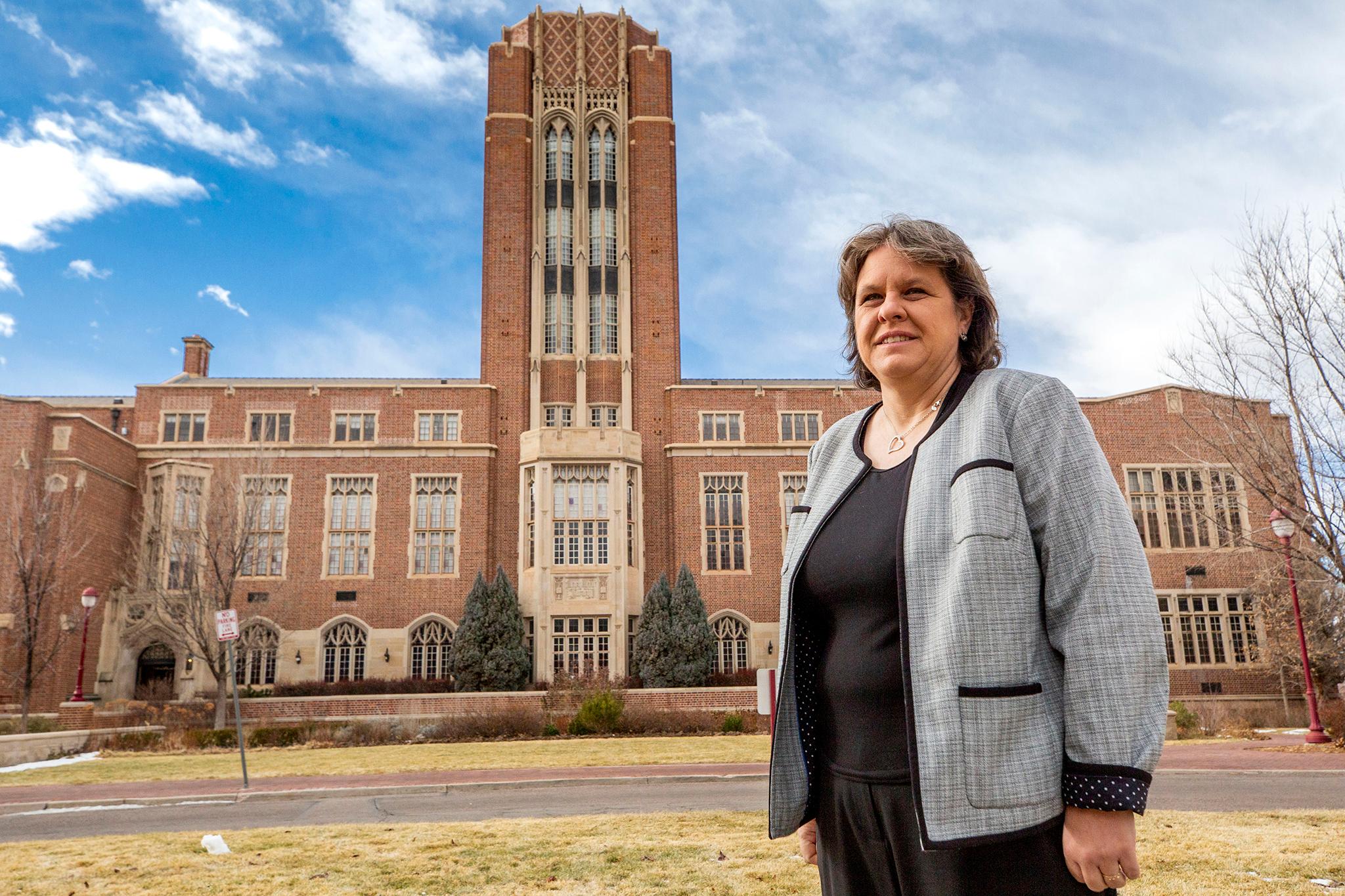
With her colleague Sarah Watamura, who chairs DU's psychology department and leads the COVID Response Team, Lengsfeld began to gather the university's best minds.
Experts in aerosol physics would map classrooms and make recommendations on how HVAC systems should be modified and how many people should fill each room and for how long. They set up CO2 monitors in hallways to learn how air circulates in common spaces. They even simulated how singing choral students would fill a room with their breath.
Other experts prepared to administer endless nasal swab tests. They also set up a custom "spit lab" that would allow for more frequent surveillance testing across campus; staff and students would run that operation to help keep costs down.
They brought in faculty who specialized in healthcare communications to perfect outgoing messages to students. Miller would handle sewage monitoring.
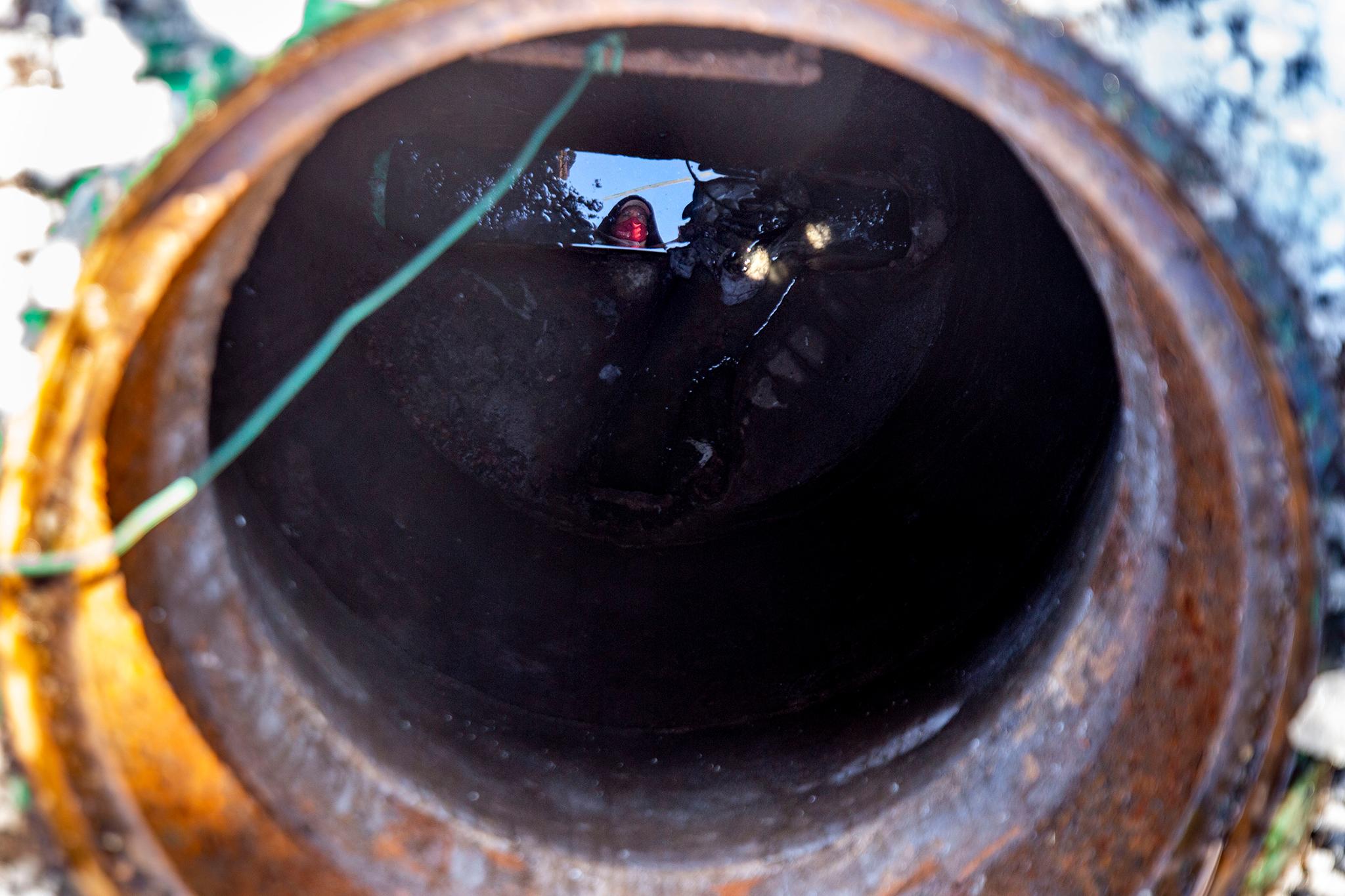
Altogether, Lengsfeld said, about 15 people regularly work to battle the virus, on top of their regular jobs teaching, running campus and conducting research. Each person is assisted by students, who see the effort as a way to gain experience in the fields they're studying.
While it's not unusual for interdisciplinary groups to work together on a college campus, Lengsfeld said she can't think of another instance in which the school's survival and operation was on the line.
"This is how you fight back," she said.
Using research and their own experience, the COVID team devised a way to keep a close eye on infections in the new year.
Students want to be on campus, Lengsfeld said. "We heard that loud and clear."
Many colleges and universities saw a dip in enrollment during the pandemic, but Lengsfeld said the fall semester saw as many students as usual. Making sure the school can provide a safe, "normal" campus experience is crucial to keeping students around, Lengsfeld said.
"DU's brand is really around the in-person connection between our faculty and students," she said. "It wasn't going to be the DU experience that we all know and desire if we weren't willing to make this commitment and make it happen."
The university's first line of defense is a series of requirements before classes even begin. Before arriving on campus students must get a flu shot, quarantine for ten days and provide proof of a negative COVID test taken within that quarantine period. Then everyone is on a strict testing regimen throughout the quarter. Students living in dorms will be tested twice a week.
Miller and his team will keep monitoring wastewater to make sure cases don't slip through the cracks.
Any student who tests positive will be required to "isolate," and students who may have come into contact with a sick classmate but haven't tested positive will be required to "quarantine". (Lengsfeld said her colleagues have been working to differentiate between the two.) Isolating students will live together in special housing that they're confined to until the virus has run its course. People in quarantine are allowed to take walks around campus, but they must live alone and aren't allowed in common spaces until they're confirmed to be COVID-free.
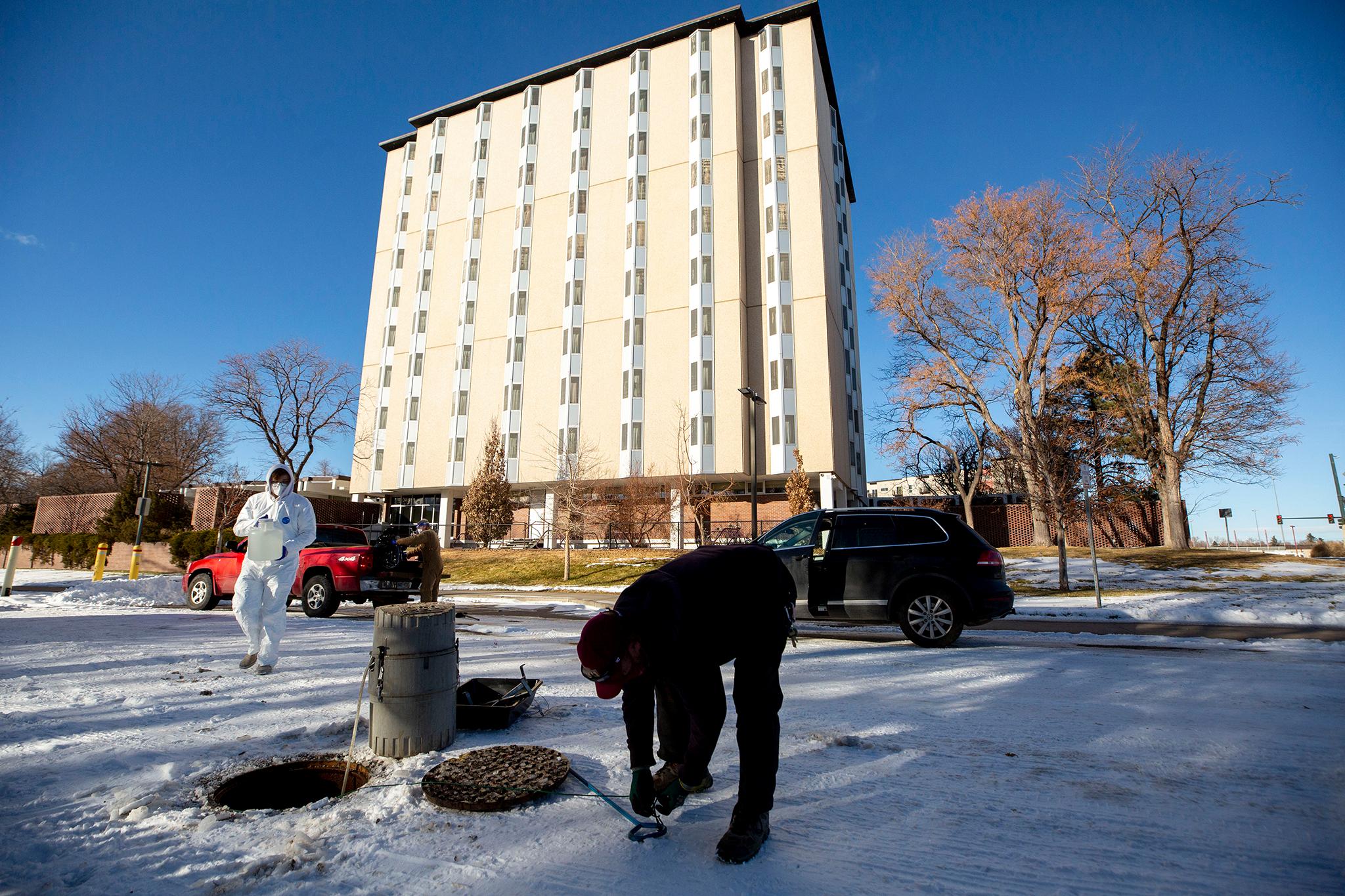
Lengsfeld expects to see a spike in positive tests in the new quarter's early weeks, which happened at local universities, including DU, when classes began in the fall. Lengsfeld said it was inevitable -- not necessarily because students were spreading the virus amongst themselves, but because the school insisted on testing so many students as they arrived from out of state (seventy percent of DU's students come from outside Colorado).
"These were people who hadn't even been in the state for 24 hours," she said of those who tested positive then.
Lengsfeld said that since an outbreak among frats and sororities in the fall, her team has worked to improve communications with members, many of whom live in off-campus houses, and make sure they're covered by stricter testing protocols.
She said her team's work was successful overall in the fall, even when members were still working through the details.
"What we achieved in the fall was amazing for a school with no medical school," she said. "Either we were smart or we were lucky. I'm not really sure, maybe both."
The lessons they've learned, she added, will help them do even better in 2021.
While this is a difficult moment, people behind the scenes have found a sense of purpose in this work.
Some teachers and researchers volunteered to help when DU began to address COVID. Others, Lengsfeld said, were "sucked" into it. No matter how they arrived, she said everyone involved has gotten something out of the experience.
"They're empowered, and they're running a piece of the show that aligns with their particular skill set," she said. "We've grown more people and more talent in the last six months than we did in several years."
That goes for students, too. Vander Georgeff, a pre-med undergrad who helped Miller collect samples on that December morning, told us he enjoyed the hands-on experience.
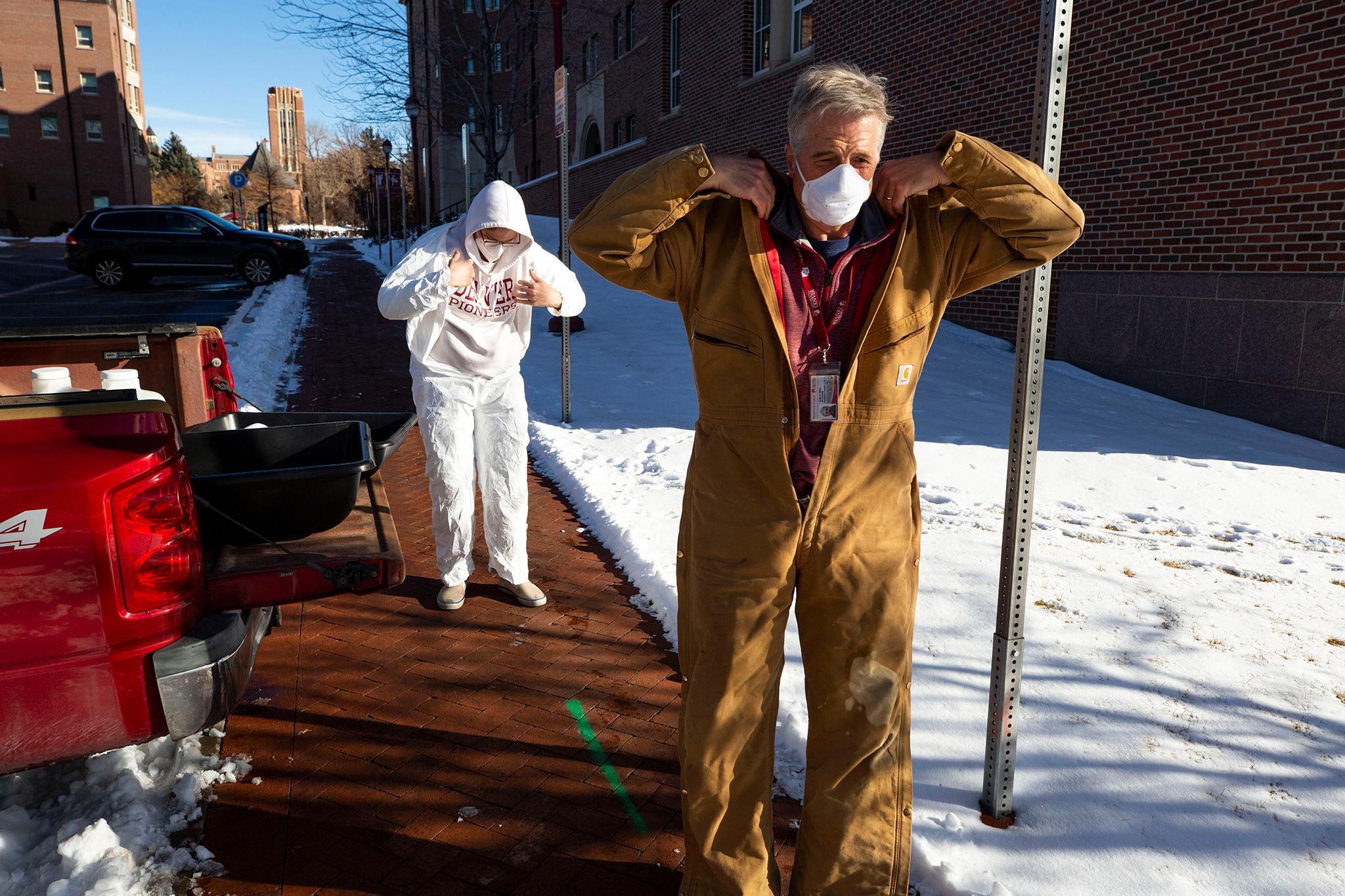
Lengsfeld said conversations are already beginning about what to do with the testing labs, many staffed by students, her team created on campus. Her colleagues have started to think about ways to keep using them when COVID-19 is no longer the priority.
"What an amazing learning experience! That's not something you want to shut down," she said. "We need to do this, because the benefit to the student body is just too amazing."
Miller said he's been most fulfilled by the sense of community and collaboration that has come with meeting the challenges of the pandemic on campus. The teamwork and the shared goals have been invigorating, he said.
"This is the first time I've been in a project where everyone shares everything they know, because of the public health need," he said. "It's the silver lining of a really terrible thing."

